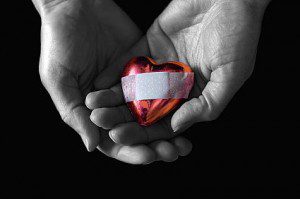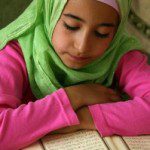This article comes on Day 16 of our special Altmuslim/Patheos Muslim Ramadan #30Days30Writers blog project, in which we are showcasing the voices of 30 Muslim leaders, activists, scholars, writers, youth and more (one on each day of Ramadan) as part of our commitment to own our own narratives and show how we are one Ummah, many voices. To demonstrate how our Ramadan experiences are shared yet unique to each of us.
Our beloved Prophet Muhammad, peace be upon him, declared that indeed, “The Muslim Ummah is like one body. If the eye is in pain then the whole body is in pain and if the head is in pain then the whole body is in pain.” We find ourselves in collective pain as current world events are breaking the hearts of millions around the country. We are witnessing unbearable levels of suffering that our generation has never before faced. The list is long: Palestine, Burma, Iraq, Syria, CAR, and many more. Family and friends in Palestine’s Gaza and occupied territories are bidding farewell to the latest cohort of dead. Countless images of children flood our screens.
In one report, a four-year-old Syrian boy used his dying breath to say that he would tell God of the atrocities done to him. If only we were as content to keep God as the ultimate Consoler, Judge and Giver of Justice.
With all this happening during a summer Ramadan, it seems like the adage rings true that when it rains, it pours. Naturally, we feel despair and sadness in this situation. Sometimes we would hastily blurt out that we give up on humanity, or perhaps become so engrossed in the news coverage that we feel too depressed to do anything but weep. We have a simple, but important response: You are stronger than that.
Those of us who are conscious of these crises owe it to those losing their lives to contribute so much more without crumbling under the intense feelings of anger and sadness. Here are some important ways to tackle the daily challenge of picking up our broken hearts, mending them and facing the world:
How to Gain Strength, Assurance and Calm in Moments of Intense Tribulation
Don’t be alone. It suffices to say that you need to be surrounded by people with the right perspective to help you get through the doubts and emotional lows. Keep company with righteous people that remind you that this life is a temporary abode.
Contemplate struggles of the past. Before Mohammad AbuKhdeir was Emmett Till. Before Israel was Apartheid South Africa. Before modern day political prisoners was (the biblical) Joseph. Who could have known that an imprisoned Joseph would later go on to rule all of Egypt? Don’t lose hope in God. As Joseph’s father said, “never give up hope of God’s mercy. Certainly, no one despairs of God’s mercy except the people who disbelieve. (Quran 12:87)”
Remember death often. The Prophet Muhammad (peace be upon him) said: “Always remember the destroyer of pleasure (death).” In other words, we must turn remembrance of death into a habit. Living a secure and comfortable life makes us forget that we already have one foot out of this earthly life. Isn’t that the point of Ramadan after all — to detach us from the material world?
Recently, a mosque director announced they were selling graves and urged people to consider buying theirs soon. It made me recall my grandmother, who already possesses a burial shroud and takes it with her wherever she goes. Our society might make us feel that thinking about death is morbid, whereas it is our obsession with immortality and longevity that is abnormal. Take down the man-made shields that prevent you from developing a healthy habit of remembering death such as:
- Security in your home & detachment from nature: try camping out one day and contemplating life in the grave.
- Savings account: Beware of getting caught saving up for a future that in reality is uncertain.
- Entertainment, social media, movies, sports and technology: These all foster an escapist mentality. Come back to reality often, visit the dead and value your time.
- Living an isolated lifestyle: Travel to other communities to gain first-hand experiences.
In place of your new found vulnerability increase in supplications, hope and resilience in Allah.
Ponder life after death. Imam Ahmad faced a challenge in remaining steadfast to the truth, he was counseled by those around him: “Why should you be worried if you get killed here and go to paradise? [ref] The Prophet mentioned paradise to help people stand firm. Talk about heaven with your children and recount its descriptions in the Quran.
Realize you are being tested with ease. Most of us feel confused or conflicted about leading our lives with ease compared to others. However, in there lies a test as well. First, the best activism in this case is repentance to Allah. We learn this from the story of Musa when the sins of one follower caused a severe drought for the entire people, which was only lifted after those sins were repented for.
Second, use your renewed motivation and experientially educate yourself about the history of these conflicts through documentaries, lectures or books. This way you know how to speak on behalf of those oppressed when the time comes. Third, beware of belittling the small hardships that befall you; react to them with patience and perseverance, because they prepare you for the harder trials. Finally, we are all connected in humanity, and doing a good deed (no matter how far physically removed from places of crisis) will counter the evil by adding to the overall good in this world.
Seek help with patience and prayer. “Seek (Allah’s) help with patient perseverance and prayer.” (Quran 2:45). The survivors are mourning, we pray that God helps them bear that burden. Also, seek and cultivate that feeling of serenity that comes from the sujood (prostration). Use your fast to strengthen your patience, because as the hadith goes: “Fasting is half of patience.”
Keep living thoughtfully. As parents we must live a life of selflessness and humility in order to impart those qualities onto our children. We can gently guide our children to have a social consciousness and care for others. Some ways to do this:
- Teach them to have generous spirits by emulating that at home. For example, you can suggest that instead of birthday gifts, they start a sadaqa box.
- Remind them to say alhamdullilah first whenever they receive any gifts or blessings.
- Connect the standard “we have many things that other people don’t have” conversation to the image of someone less fortunate by finding an overseas pen pal or volunteering at a soup kitchen.
- Don’t avoid talking about death; stop over-entertaining yourself and beware of fostering an escapist mentality.
- Give your children experiences instead of material things.
Limit your news consumption. This is especially true for those getting their news from social media, which can have graphic images. First, respect the dead by not sharing their images online. Second, it is important to stay informed, but not to the point where tragedies overseas consume your every thought, cause sleeplessness or inhibit your ability to parent your children. Limit social media.
Take action. Don’t underestimate the potential impact of any form of activism and don’t be overwhelmed in the face of such a daunting challenge. One notable example is of Syrian refugee teenage girls who, in the face of mistreatment at the hands of greater society, decided to bake and distribute cupcakes as a way of raising awareness in the indigenous population in regards to the discrimination and hardships they face. Also, in this day and age, an online social activism presence can be very effective. Comment on articles, report bias or inaccuracies in news reporting, sign petitions, write letters.
We all feel the pain of those suffering here and abroad. However, remember that you are in a position to console and uplift those around you. Empower yourself and strengthen your heart, and help those around you to do the same.
Marwa Aly is a mother of two kids and Muslim chaplain. Dalal Kanan is a postdoctoral researcher and mother of two girls from NJ. They are contributors to the GrowMamaGrow blog, an online community of American Muslim mothers and young women.

















